Liverpool defender Dejan Lovren, Chelsea midfielder Mateo Kovačić and Ajax striker Dušan Tadić stored millions of image rights payments in Rasport Management AG, the company at the centre of an indictment against Zdravko Mamić and his associates for gross crimes such as “criminal association” while appropriating 19.6 million Euro out of Dinamo Zagreb
This summer Croatian defender Dejan Lovren experienced a similar peak to his sports career as the best player of the 2018 World Cup Luka Modrić, where the two played together in the final in Moscow. A few weeks earlier they met in another important match, in the final of the Champions League. This time they were on opposite sides, Modrić as a key player for Real Madrid, Lovren as a defensive pillar of Liverpool.
They have more in common. The career of both players started in Dinamo Zagreb, where both shared then executive vice-president as their player’s agent Zdravko Mamić. In July 2008 Luka Modrić was transferred from Dinamo Zagreb to Tottenham for €21 million transfer fee and Lovren was transferred from Dinamo Zagreb to Olympique Lyonnais for €8 million fee in January 2010. This was big money for the club.
But half of these sums ended up in the private bank accounts of Zdravko Mamić and his associates, and the Croatian authorities initiated investigations for abuse of trust in business dealings and tax evasion.
In June 2018, the District Court in Osijek sentenced Zdravko Mamić to six years and six months in prison, because he illegally funneled 50 percent of Modric’s and Lovren’s transfer fees from Dinamo Zagreb. Also his brother Zoran Mamić and then director of Dinamo Zagreb Damir Vrbanovič who is executive director of Croatian Football Federation today were sentenced to years in prison for crime of abuse of trust in business dealings. According to the judgement they appropriated 15.6 million from the club, and Zdravko Mamić needs to return 7 million euro of illicit gains to Croatia’s budget.
The conviction is not legally valid as it had now gone to appeal in the Supreme court. But Mamić, who closely collaborated with the ruling Hrvatska Demokratska Zajednica (HDZ) party, and was financially and organizationally involved in the election campaign of the current president of Croatia Kolinda Grabar-Kitarović and extreme right wing of ruling HDZ party, escaped to Bosnia and Herzegovina just days before the court conviction.
The Croatian president made splashes in world media and social networks immediately after the World cup 2018 finals, as she tried to get as much attention as possible during the rainy celebration of the world football champions and runners-up, and between Russian president Vladimir Putin, French president Emmanuel Macron and FIFA president Gianni Infantino.
However, her background connections have different dimensions. Her personal connections with Zdravko Mamić were among the main reasons why former chief of Croatian main intelligence agency SOA Dragan Lozančić lost his job.
This happened because SOA had key role in collecting the most sensitive evidences of Zdravko Mamić criminal activities, what allowed a possible reconstruction of his personal contacts. When the outlines of this investigative operation began to unfold, the president dismissed the first Croatian intelligence officer in February 2016.
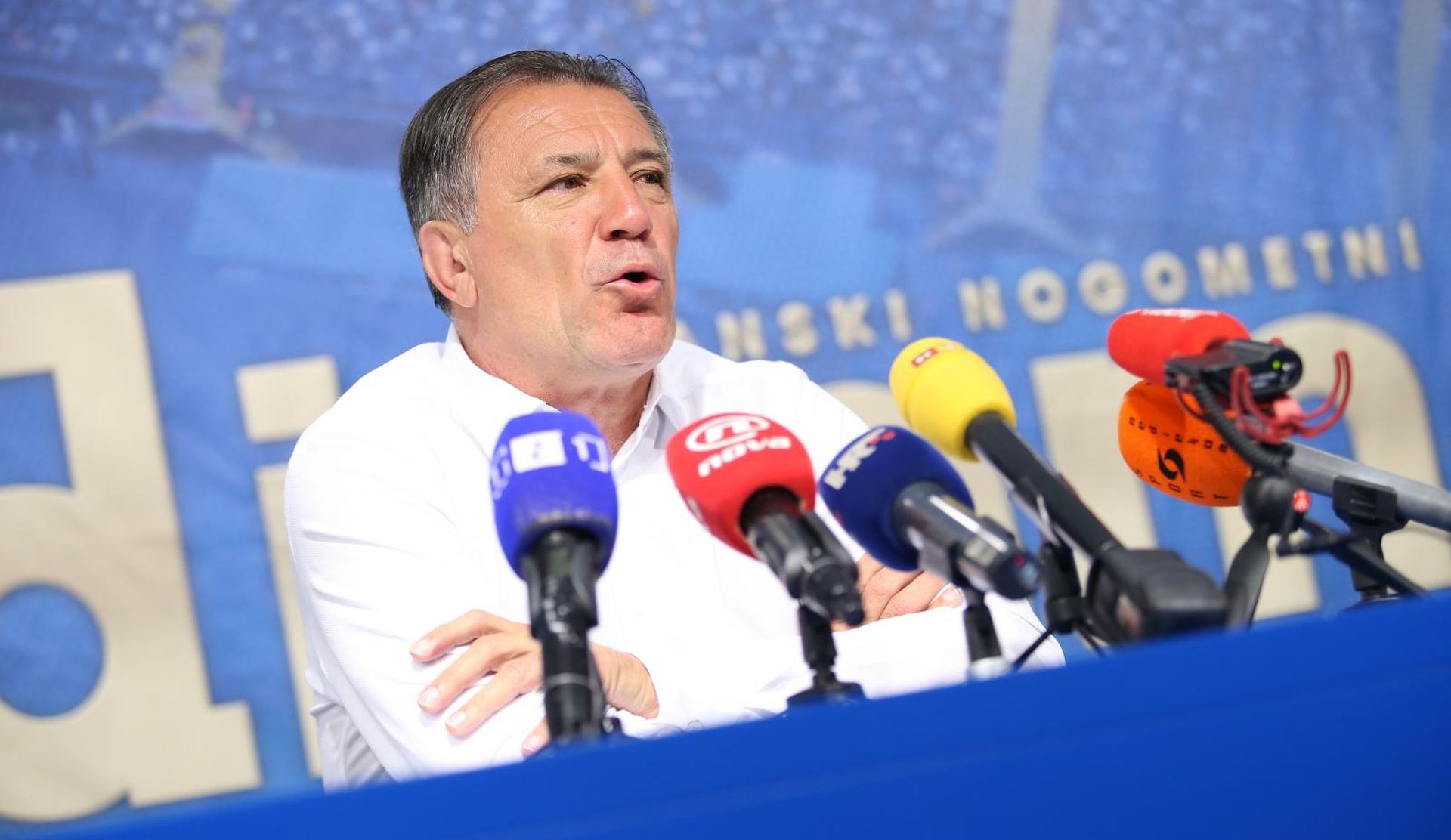
04.06.2018., Zagreb – Izvanredna konferencija za novinare Zdravka Mamica u press dvorani stadiona Maksimir, dva dana prije nego ce mu na Zupanijskom sudu u Osijeku biti izrecena presuda.
Photo: Petar Glebov/PIXSELL
Zdravko Mamić is not just an ordinary football agent or “deal-maker”, he had and still has real power, influence and good connections with politicians and some of the most sensitive parts of intelligence and security apparatus of Croatia.
Few days before conviction at the court in Osijek, which is not legally valid yet, Zdravko Mamić organized dramatic press conference, where he presented copies of text messages exchanged between leading officers of Croatian elite State Prosecutor’s Office for the Suppression of Organized Crime and Corruption (USKOK) and key judges in trial against Mamić.
He claimed a conspiracy to convict an innocent men existed. Meanwhile the press immediately questioned Mamić’s documentation as it looked superficial and amateur.
Few month later, in September 2018, former police IT expert Franjo Varga was arrested under suspicion that he falsified text messages presented by Zdravko Mamić at press conference and also some other similar messages, which were intended to compromise Croatian Prime Minister.
This case evolved into one of the most complex scandals in contemporary Croatia. Parts of Varga’s testimonies given after his arrest and leaked to the press, began to reveal attempts to undermine judiciary and key elements of the government. According to these testimonies, Zdravko Mamić individually and through Dinamo Zagreb paid for Varga’s services, and Varga was a man of great trust of then HDZ leadership. Police investigators reconstructed that former president of HDZ party and ex-minister of interior Tomislav Karamarko connected Franjo Varga with Zdravko Mamić. And also that Varga’s services were used by current secretary general of HDZ party Milijan Brkić and then main analyst of HDZ Vlado Galić. Brkić is also vice-president of HDZ party and vice-president of Croatian parliament today, while Galić is defense and nacional security adviser of the President Kolinda Grabar-Kitarović. HDZ party denies they paid Varga for his work.
Zdravko Mamić also organized and financed many dinners and private birthday party of the Croatia president in May 2015, while she was in the office.
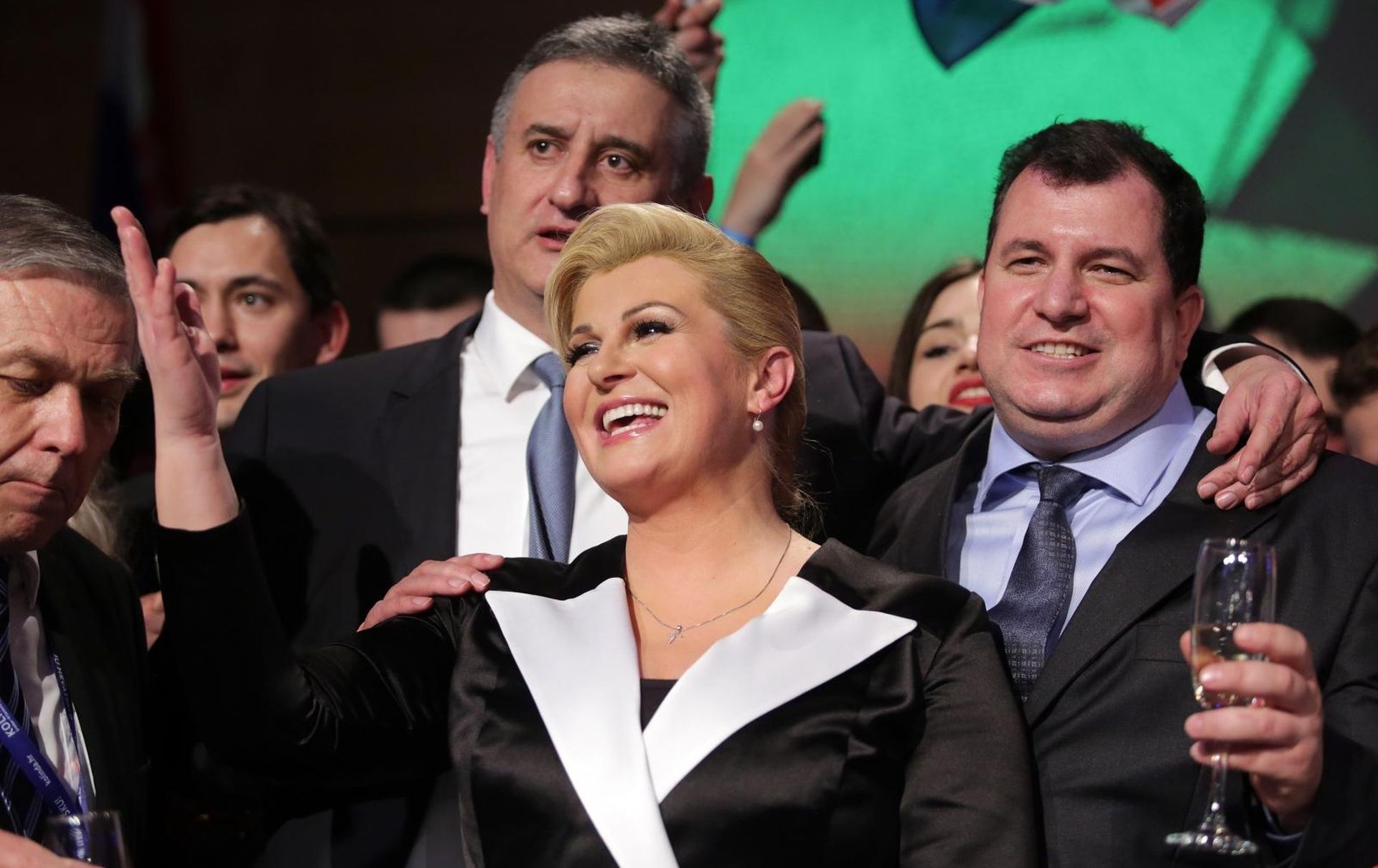
11.01.2015., Zagreb – Izborni stozer u Hypo centru HDZ-ove predsjednicke kandidatkinje Kolinde Grabar Kitarovic gdje se ocekuju rezultati drugog kruga predsjednickih izbora 2014./2015. Photo: Grgur Zucko/PIXSELL
In July 2016 then the Supreme State Prosecutor Dinko Cvitan was under highest security measures of Croatian police because of probable cause that assassination against him is in preparation. Based on more indications Cvitan suspected that Zdravko Mamić wished to get him liquidated. Zdravko Mamić has publicly denied this on a press conference he called, after he recognized himself in the Nacional, despite Mamić was not mentioned in an article. Cvitan is living under police security measures still today.
But let us return to the Osijek trial and new indictment against Zdravko Mamič and his associates.
In a trial at the District Court of Osijek against Zdravko Mamić, both players Dejan Lovren and Luka Modrić testified as a witness. Both surprisingly changed their testimonies from preliminary police investigations, in favor of Zdravko Mamić at the court. Later, both were prosecuted for perjury, with a maximum threatened penalty of five years in prison. But in October 2018, the indictment against Modrić was postponed until the conviction of Zdravko Mamić and his associates will become fully legal.
More important is the second indictment where Zdravko Mamić and his associates are accused of “criminal association”, therefore organized crime, which is a term usually reserved for criminal gangs and mafia. In July 2017 the Croatian elite State Prosecutor’s Office for the Suppression of Organized Crime and Corruption (USKOK) filed another indictment to the District Court in Osijek against Zdravko Mamić, his son Mario Mamić, brother Zoran Mamić, Davor Vrbanović, who is still executive director of the Croatian Football Federation, Sandro Stipančić, Igor Krota and FIFA-registered intermediary Nikky Arthur Vuksan. This time they are accused of “criminal association” in abuse of trust in business dealings. Persons accused allegedly misappropriated additional 19.6 million euro from football club Dinamo Zagreb through many off-shore companies during a series of transfers of football players between 2004 and 2015. The second indictment is not legally valid because it is pending an appeal in the Supreme Court.
According to the Croatian prosecutors, the gang used many companies in Switzerland, UK, St. Vincent & the Grenadines, Belize, Hong Kong and the United Arab Emirates to funnel money out of Dinamo Zagreb. In the first Football Leaks series, Nacional published more stories on the transfers of players Mateo Kovačić, Marcelo Brozović, Duje Ćop and Tim Jedvaj, where big shares of the transfer fees ended in the same shady network of offshore companies under Mamić’s control. Swiss company Rasport Management AG, registered in the Canton of Obwalden, with one of lowest corporate tax in Switzerland, was one of the central companies in this network.
But 70 millions of documents obtained by Der Spiegel and shared with Nacional and other partners of European Investigative Collaborations (EIC) reveals this Swiss company collected also at least 4.5 million euro in image rights payments from football clubs of Croatian players Dejan Lovren and Mateo Kovačić and Serbian striker Dušan Tadić.
Image rights are a form of economic right which cover all commercial and public appearances of a player on shirts, TV spots, commercials and video games and many European clubs allowed players to receive these payments in offshore and low-tax countries where they can avoid or evade taxes. One such example is Luka Modrić, who in January 2018 agreed to eight months of conditional prison sentence in a settlement with Spanish prosecutors, and an additional payment of 1.4 million euro of unpaid taxes and fines. The story on Luka Modrić’s tax refuge in Luxembourg was first revealed by Nacional in December 2016. Image rights payments transferred through offshore companies are one of the most usual methods of tax evasion which EIC partners revealed in Football Leaks project in first series in 2016 and is revealing again in these weeks.
Beneficiary Nr. 1 – Dejan Lovren
In June 2013 Dejan Lovren moved from the French Ligue 1 to the English Premier League. From Olimpique Lyon he joined Southampton FC for a eight million euro transfer fee.
His first basic salary in UK was 2 million pounds annually or 2.26 million euro gross, without bonuses, till the end of June 2017. But on 14 June 2013 Southampton Football Club Limited signed an additional confidential “Image rights agreement relating to Dejan Lovren” with Swiss company Rasport Management AG. This contract brought Lovren an additional 350,000 pounds or 395,500 euro annually in the form of image rights, which needed to be paid to the bank account of this Swiss company, represented by its Swiss based chief executive officer Marco De Cia. These image rights represented exactly 15 percent of Lovren basic salary. On same day Lovren signed also a “Player Guarantee of Image rights” with Southampton FC, with which he guarantees to the club that Rasport Management is in full control of his image rights and that in the case, if the UK tax authority Her Majesty Revenues and Customs (HMRC) will have any tax claims on his image rights, the Swiss company will pay these taxes, or the sum of image rights paid by the club will be lowered accordingly to possible tax claims. Therefore all responsibility for paying taxes in the UK were laid on Lovren.
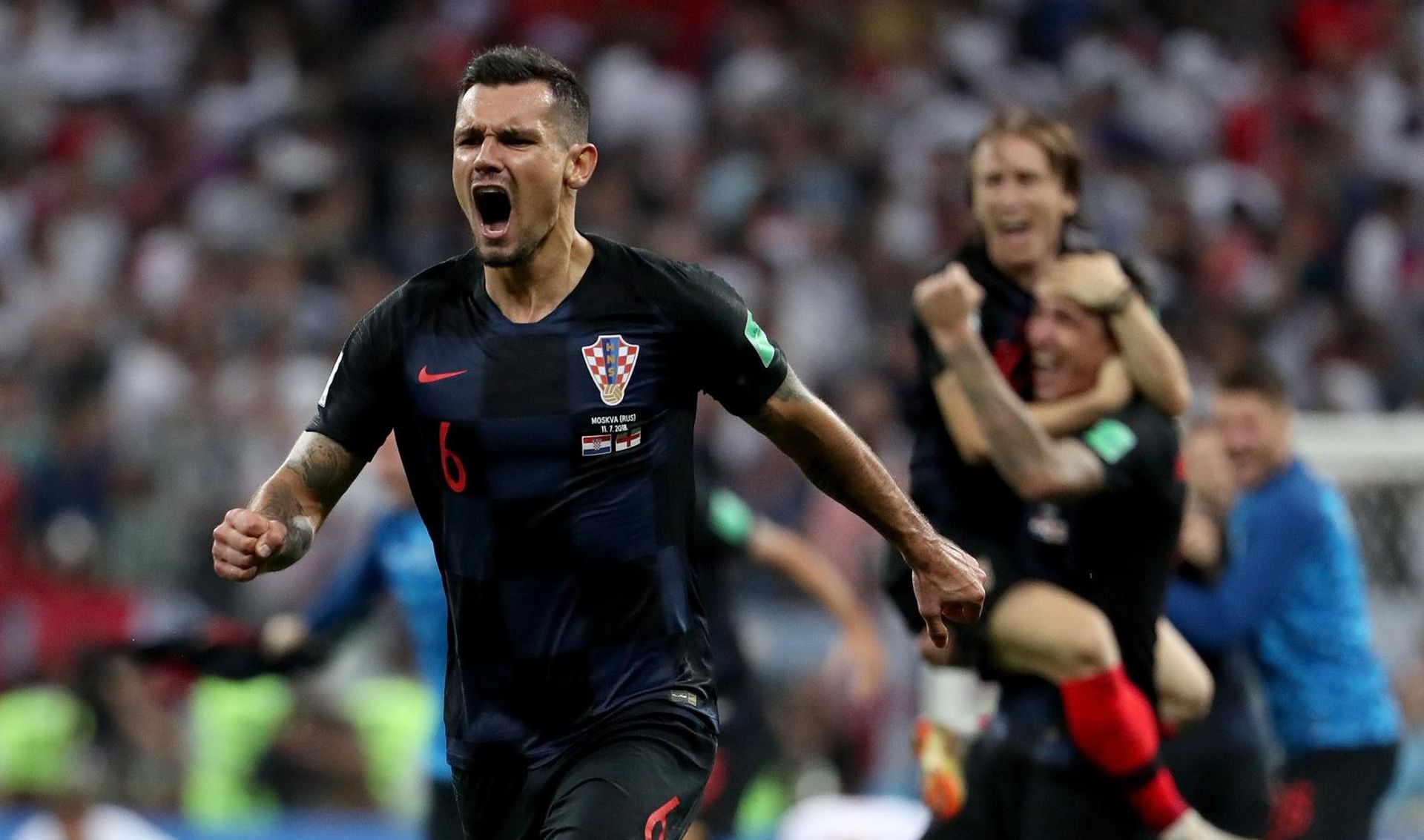
11.07.2018., stadion Luznjiki, Moskva, Rusija – Svjetsko nogometno prvenstvo 2018., polufinale, Hrvatska – Engleska. Dejan Lovren.
Photo: Igor Kralj/PIXSELL
After a successful first season in the Premier League, Lovren moved to a bigger club, Liverpool, in July 2014. The value of this transfer was 20 million pounds. He received a significant pay rise too. During the next five seasons until the end of July 2019, he was entitled to 3.4 million pounds or 3.8 million euro of basic fixed salary without bonuses. Also his image rights earnings increased to 510,114 pounds annually, as written in clause 13.1 of schedule 2 to his employment contract. But the name of a company which collected this sum of image rights and provided Lovren’s services as the “community public relations and marketing” of his image to Liverpool is not mentioned in this contract. Its name appears in another document, Lovren’s personal guarantee, which he signed on the same day 26 July 2014. It is Swiss company Rasport Management again.
Altogether, Lovren was entitled to collect in this Swiss company 350,000 pounds from Southampton for the 2013/14 season and an additional two million pounds from Liverpool during the last four seasons, what adds up to 2.4 million pounds or 2.7 million euro, if we take into account the exchange rate valid today.
According to our calculation, if Lovren would report this sum of 2.7 million euro, collected in Switzerland, as personal income to HMRC, he would need to pay approximately 1.4 million Euro of taxes, with social security included.
Did Lovren pay any taxes on this sum? Or at least on his personal image global rights exploited in the United Kingdom, which shall be taxed there? Lovren declined to answer this and many other questions.
This is not the only probable tax issue Lovren has with HMRC. His personal agent during transfers from Olimpique to Southampton and later from Southampton to Liverpool was the official FIFA intermediary Nikky Arthur Vuksan, one of the defendants accused for gross crimes by the Croatian special prosecutors office (USKOK).
In both Lovren’s transfers Southampton and Liverpool used “double representation”, which means that Vuksan represented both the engaging club and a player. In 2013 Vuksan’s transfer fee from both Southampton and Lovren reached 525,000 pounds, and in 2014 transfer his fee paid by Liverpool and Lovren reached two million pounds. However, documents filed to the Football Association reveals that it was Southampton and Liverpool who paid their own half of these fees and also the other half of these fees on Lovren’s behalf, or 1.262 million pounds (1,43 million euro) altogether.
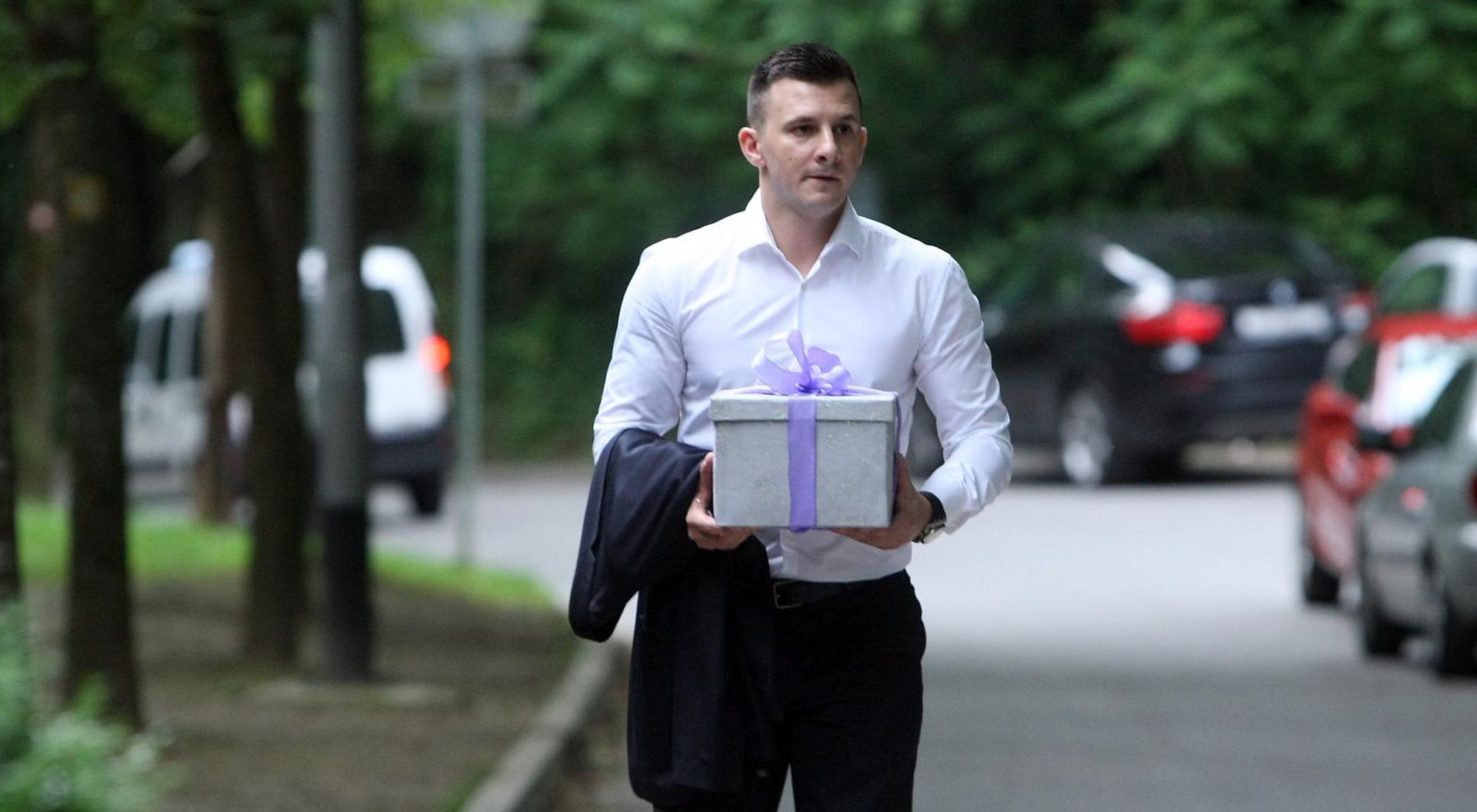
14.06.2014., Zagreb – Dolazak gostiju na svadbu Zorana Mamica i Ane Sikic u poznati restoran Dubravkin put. Nikky Vuksan.
Photo: Luka Stanzl/PIXSELL
As in many European countries, HMRC treats this as a “benefit in kind” to the player and is therefore a taxable income. There is no available information in Football Leaks documentation whether HMRC contacted Lovren, Southampton or Liverpool about these taxes on agent fees paid on the player’s behalf by the clubs. Lovren declined to comment, and Southampton and Liverpool did not answer questions.
“We do not comment on identifiable taxpayers,” HMRC responded to detailed questions sent by EIC partner on many football players. “HMRC works closely with football clubs to ensure payments made to their agents during the renegotiation of a contract or club transfer are taxed correctly. We actively challenge any payments we consider not to be realistic and ask for evidence to prove legitimacy of any arrangement.”
“HMRC rigorously enforces the rules and has brought in £332 million in extra tax by tackling non-compliance in the football industry. We’re carrying out visits to every Premier League club and most football league clubs, along with their players. We’re currently making enquiries into 171 footballers, 44 football clubs and 31 agents for a range of issues, including image rights abuse,” HMRC added.
Beneficiary Nr. 2 – Mateo Kovačić
18 August 2015 was an important day for player Mateo Kovačić. As a 21 year-old talent, he had just finished his second season in Inter Milan and was on a private jet hired by Real Madrid flying to his new club to sign an employment contract, which would bring him millions. He was not alone on this plane, as he was together with his official and unofficial agents Mario Mamić, Nikky Arthur Vuksan and Danijel Kuraja.
The contract between Inter Milan and Real Madrid for Kovačić’s transfer, worth 35 million euros, was signed on the same day, 18 August 2015. The next day Kovačić signed his employment contract, which brought him an annual 5.5 million euro basic fixed salary without bonuses for the next six seasons, till the end of August 2021.
However, as many of his teammates at Los Blancos, also Kovačić enjoyed an additional 15 percent secret salary in the form of image rights, valued at 983,600 Euros annually. Thus his real basic fixed salary was 6.5 million euros.
Football Leaks revelations by Nacional and EIC partners from 2016 brought many Real Madrid players and coaches into trouble. Luka Modrić, Cristiano Ronaldo, Xavi Alonso and Jose Mourinho are only a few of those prosecuted for tax evasion of these image rights’ earnings, collected in foreign countries with low or zero taxation.
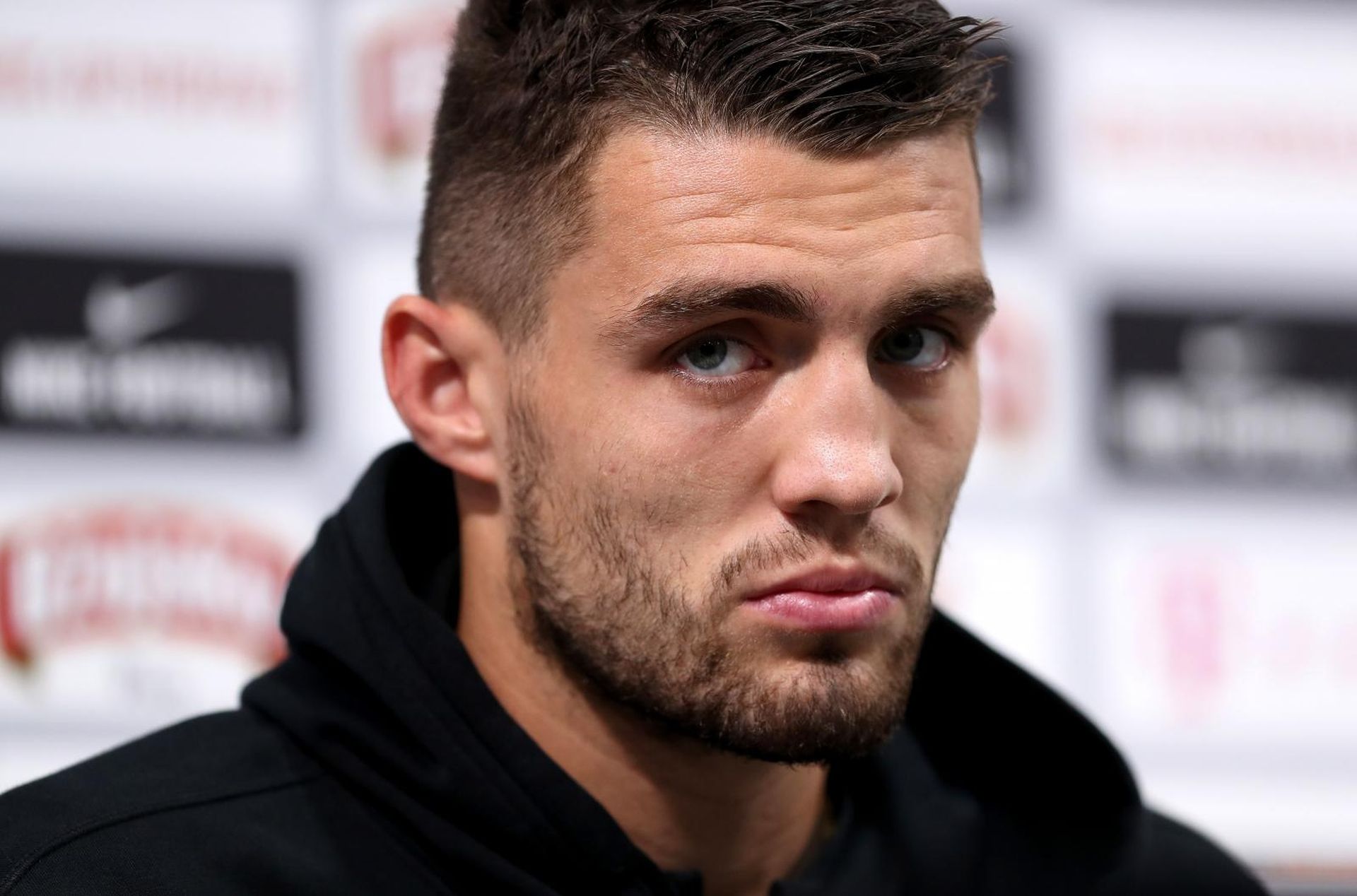
19.06.2018., Rusija, Roscino – Svjetsko nogometno prvenstvo u Rusiji 2018.
Hrvatski nogometni reprezentativci Mateo Kovacic i Ante Rebic odrzali su konferenciju za medije na stadionu Arena Roscino.
Photo: Igor Kralj/PIXSELL
And where did Mateo Kovačić collect his image rights? In the Swiss company Rasport Management.
It is important to note that in August 2016 Real Madrid changed its employment contract policy for its players. Previously, it distributed 85 percent as a basic fixed salary and 15 percent as image rights, a system the club abandoned because of many investigations by the Spanish tax authorities against its players.
Thus for Mateo Kovačić only the first season 2015/16 might be a tax issue. The first half of his 983,600 euros of annual image rights earnings, Kovačić was entitled to in season 2015/16, were transferred to bank account of Rasport Management opened at BCP Banque de Commerce et de Placements, in Geneva. According to the invoice signed by Marco De Cia, director of Rasport Management, dated 15 January 2016, first installment of 491,800 euro shall be paid to this Geneva bank. The second half of this sum shall follow on 10 July 2016, according to the “Agreement for the Assignment of Image Rights concerning professional football player Mr Mateo Kovačić.”
At that time Kovačić was living in Madrid and was therefore a Spanish tax resident. For residents of Madrid, the individual income tax rates was 43.5 percent in 2016, what would mean €428,000 of possible taxes for Kovačić’s image rights collected in Swiss company.
But did he pay these taxes to the Spanish budget or did he follow his teammates who ended up in criminal prosecution for crime of tax evasion? Mateo Kovačić declined to answer.
Real Madrid did not answer questions on this issue either. Only the Spanish Ministry of Finance, which is responsible for tax collection, replied: “The Ministry of Finance can’t comment on the information of individual taxpayers. Anyway, the Tax Agency works hard in the fight against tax fraud. In fact, the government has passed a law that has to be voted by Parliament to strengthen the fight against these negative practices.”
And how much did Kovačić’s intermediaries earn from his mega 35 million euro transfer? According to a spreadsheet from Real Madrid, the agent fee in the sum of three million euros shall be paid to Sport Servis MM d.o.o., registered in Bosnia and Herzegovina, in a region where Zdravko Mamić found refuge from Croatian authorities. The director of this company is Danijel Kuraja, and the sole owner is Mario Mamić, son of Zdravko Mamić, who has permanent address in same region at least since September 2014. In this poor Balkan country, corporate tax is only 10 percent, or half the European Union average, what can bring sizable amounts in benefits for companies needing a low tax haven. The company Sport Servis MM also had other problems with authorities. In January 2016 it was raided by the Bosnian State Investigation and Protection Agency (SIPA), an elite investigative police force, during investigations of alleged crimes of money laundering.
This part is not over yet. The Kovačić transfer from Inter Milan to Real Madrid gets even more interesting. According to the FIFA Transfer Report Nr 122947 on Kovačič’s transfer executed on 18 August 2015, only one agent is listed. Danijel Kuraja. And he is listed as an “intermediary representing FC Inter Milan”. Simultaneously, in Real Madrid’s internal documents analysed by Nacional, the company he represented at that time, Sport Servis MM, was listed as a recipient of three million euro of agent fees for Kovačić’s transfer. This seems to be not only double, but “triple representation”, thus the Mamić gang and its associates represented both the releasing club Inter Milan, the engaging club Real Madrid and the player Mateo Kovačić.
Mateo Kovačić is now playing on loan at Chelsea FC and he declined to comment. All other persons involved did not respond to questions.
Beneficiary 3 – Dušan Tadić
Mamić’s gang and associates were not collaborating only with Croatian players. In the Swiss company Rasport Management, the image rights of Serbian striker Dušan Tadić have also been collected. He has been playing for Ajax since July 2018, but for the previous four seasons he was in the Premier League with Southampton, a club he joined on 8 July 2014 for a 13 million euro transfer fee from Dutch FC Twente. From this sum, FC Twente paid 1.8 million euro agent fee to its club agent Dejan Joksimovic and 1.1 million euro to Doyen Sports Investments Limited, which then had ten per cent of third party ownership on Tadić’s economic rights.
Official FIFA intermediary Tim Bailey was Tadić’s and Southampton agent in “double representation” during this 2014 transfer. Bailey’s fee was 2.5 percent of Tadić’s annual salary, which was fixed as 1.8 million pounds without bonuses. It seems to be nothing extraordinary as Bailey’s agent fee at 218,400 pounds combined was much lower than the extraordinary fees of many agent-sharks in the football world.
The only problem for Tadić might arise from the fact that half of his fee, or 109,200 pounds, was paid by Southampton, which is treated in UK as “benefit in kind” and as such a taxable income for the player.
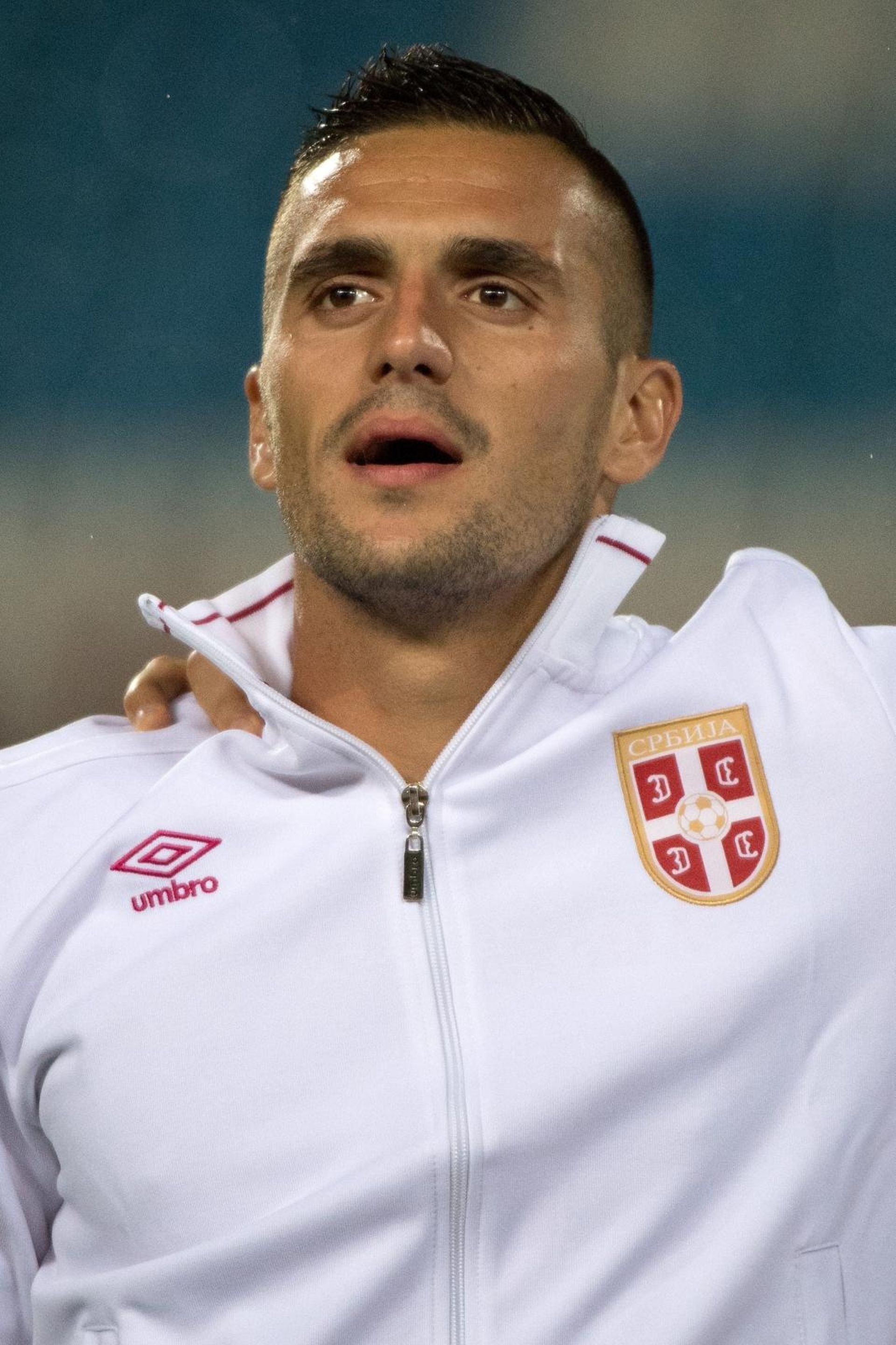
05.09.2016., Beograd, Srbija – Stadion Rajko Mitic, FIFA Svjetsko prvenstvo, kvalifikacijska utakmica Grupe D, Srbija – Republika Irska.
Dusan Tadic. Photo: Srdjan Ilic/PIXSELL
But what is more interesting again are Tadić’s image rights. The employment contracts of Tadić signed with Southampton on 14 July 2014 reveals in clause 13.1 under Schedule 2, that Southampton will pay him 180,000 pounds annually to the Swiss company Rasport Management.
As Tadić played four seasons in Southampton, this brings a minimum sum of image rights payments to this company of 720,000 pounds or 813,600 euro today.
If Tadić would report this sum of 813,6000 euro, collected in the low tax Swiss Canton of Obwalden, as personal income to HMRC, he would need to pay approximately 415,000 Euro taxes to HMRC, with personal income tax and social security included.
Dušan Tadić contacted through Ajax and Serbian Football Association did not answer to our questions. Nor did Southampton FC.
Main beneficiary – Mario Mamić
The Swiss Canton of Obwalden, with 490 square kilometers and a population of 37,500, is one of the smaller cantons in Swiss Confederation. The village Apnach where Rasport Management AG is registered has only 6,000 people. But local law and accounting companies have been attracting foreign investors with the following message: “At a rate of 12.74% for legal persons (canton tax, local tax and federal tax), the canton of Obwalden has one of the lowest rates of profits tax in Europe.”
This was probably one of the main reasons why Mario Mamić, son of Zdravko Mamić, informal ruler of football in Croatia with good connections to the office of the President of Croatia and extreme right wing of ruling HDZ party, decided to settle his company here.
In the Swiss official registry there are no clues that Mario Mamić is involved in this company. A Swiss partner in EIC, Tamedia, checked and shared with Nacional all publicly available Swiss registry documents about Mamić’s possible connection with Rasport Management and it was impossible to find any clue. This might be a good example of Swiss banking and corporate secrecy.
According to these documents, Rasport Management was founded with 100,000 Swiss Francs stock capital on 28 July 2007 by Swiss citizens with no visible connections to Mamić’s gang and associates. More than a year later, on 9 December 2008, important change appeared in the registry. Post packages intended for Rasport Management AG were sent to another Swiss company Vogler InterTrust aG, based in Zurich and represented by Marco De Cia, who also became the sole legal representative of Rasport Management AG on the same day.
De Cia is the person who signed the contracts in the name of Rasport Management with football clubs to collect 4.5 million euro image rights of players Lovren, Kovačić and Tadić. But he is not alone in this business. On 20 July 2012 Rasport Management added another person as a representative beside De Cia. This was Zurich lawyer Gianpaolo Monteneri, former Head of the Player’s Status Department at FIFA between 1997 and 2005, thus he held one of highest position in FIFA administration. Monteneri was a representative of Rasport Management until May 2017.
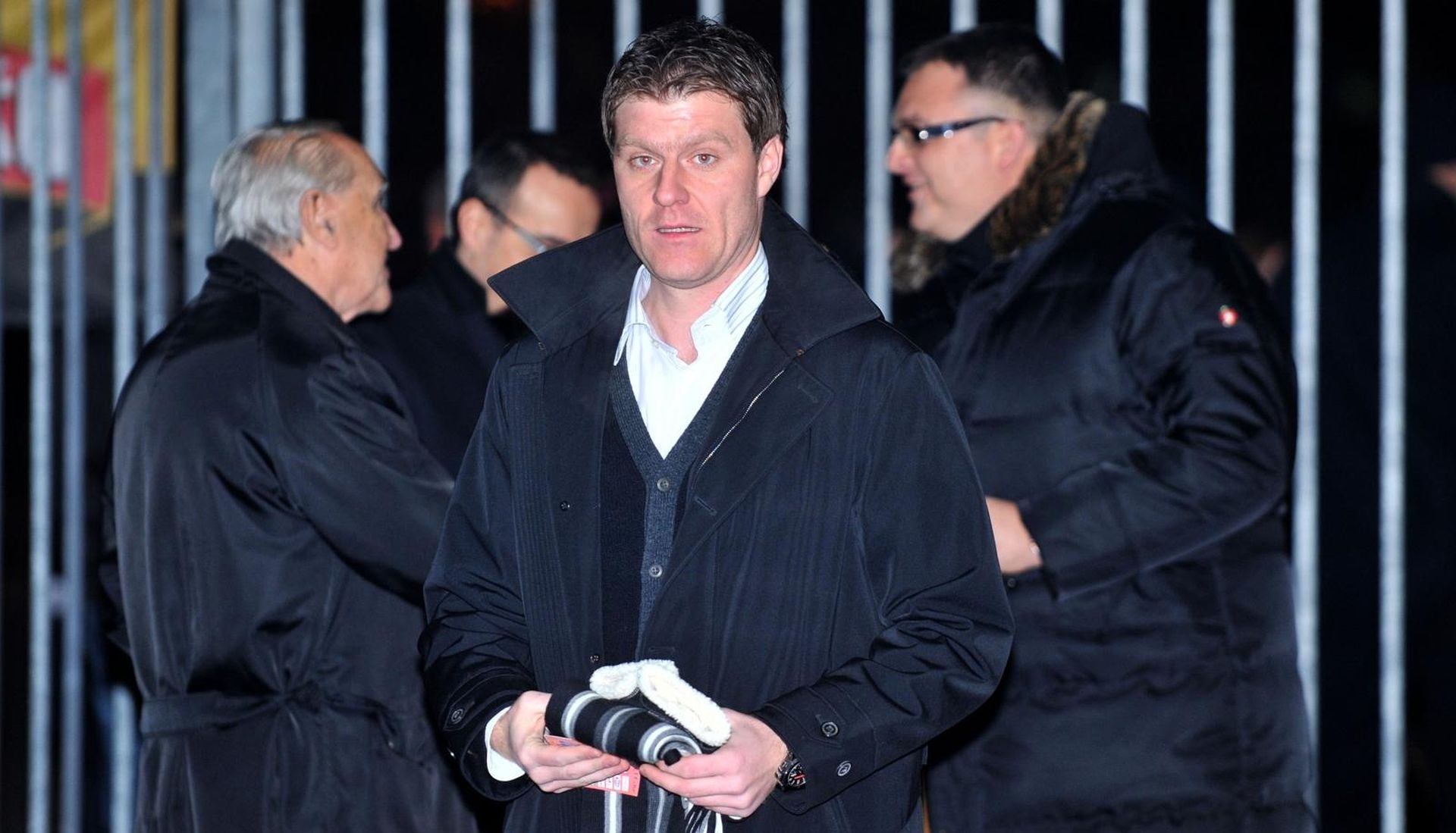
15.11.2011., Maksimir, Zagreb – Druga utakmica dodatnih kvalifikacija za Europsko prvenstvo 2012. godine u Poljskoj i Ukrajini, Hrvatska – Turska. Mario Mamic.
Photo: Marko Lukunic/PIXSELL
After he left FIFA he founded Monteneri Sports Law, a legal firm based in Zurich, promoted as “experts in sports law and football disputes.” The Nacional revealed during first Football Leaks series that post packages of the Canadian shell company PSM Pro Soccer Management Inc. have been sent to Monteneri Sports Law address in Zurich, at the same time as to Zdravko Mamić at Dinamo Zagreb address.
It was a complex story of 25 million euro loan provided to Dinamo Zagreb through a Maltese company Gettysburg Limited, managed by Zdravko Mamić’s Russian partner, and which was repaid by 50 percent of all revenues the football club Dinamo Zagreb will receive from future transfer of players. It seems like another bypass to FIFA third party ownership ban, valid since January 2015. And in at least two occasions for transfers of Dinamo Zagreb players, for Marcelo Brozović to Inter Milan and for Duje Čop to Cagliari, the money flowed back as these loan repayments from Dinamo Zagreb to Maltese Gettysburg Limited, and then to Canadian PSM Pro Soccer Management Inc., which post packages have been collected by Monteneri Sports Law.
Actually, a fact that Monteneri Sports Law received all legal writings in the name of PSM Pro Soccer Management Inc. reveals that it might be secretly managing this shell Canadian company.
And who is the real owner of Rasport Management? As revealed before, it is not possible to get this information from publicly available corporate and court registries. But vast and long term criminal investigation of elite Croatian State Prosecutor’s Office for the Suppression of Organized Crime and Corruption (USKOK) for 19.6 million euro appropriation of Dinamo Zagreb funds resulted in international legal assistance requests filed to Swiss authorities.
In October 2016 Swiss newspaper Luzernerzeitung published that investigation of economic crimes department of prosecutor in canton of Obwalden is almost finished. “We are dealing here with economic crime of the coarser variety,” said the chief prosecutor of Obwalden, Esther Omlin, who sums up the investigation. The Obwalden prosecutor’s office focused on Rasport Management AG, a company based in Brünigstrasse 25 in Alpnach. This company ran some of the illegal financial transactions around the football club Dinamo Zagreb. “It’s about unfounded intermediary services and nonexistent player transfers,” says Omlin. From Alpnach, some of the dubious payments went all over the world – namely to London, Belize, Kingstown, Hong Kong, Dubai, Panama, Gibraltar and also to Zurich. “Overall, we are talking about payments in the double-digit millions,” Omlin continued. It is a “complicated and confusing” network of financial transactions.
“Behind the company Rasport Management AG stands Mario Mamic, the son of Zdravko Mamic. The brothers Zdravko and Zoran Mamic are considered to be the most powerful strippers in Croatian football. The clan is accused of tax evasion, corruption and money laundering,” Swiss newspaper wrote.
Investigation in canton of Obwalden was not the only investigation against Mamić gang in Switzerland. In collaboration with Nacional and EIC Swiss partner Tamedia sent questions also to prosecutors in canton of Geneva, where Rasport Management bank accounts were opened at local banks. On question if prosecutors investigated any money laundering of Mamić family in its jurisdiction, Geneva prosecutors answered: “As part of the name that you quote, the Geneva Public Ministry confirms it has worked in mutual assistance following requests from the Croatian authorities. These have been executed. The Geneva Public Ministry does not intend to make any other comments.”
After Swiss prosecutors of Obwalden and Geneva passed their findings to Croatian elite prosecutors unit, it successfully concluded criminal investigation and filed an indictment to the Court for “criminal association” and abuse of trust in business dealings of Mamić gang in July 2017.
Beneficial owner of Swiss company Rasport Management and Bosnian company Sport Servis MM Mario Mamić did not answer on question if Lovren’s, Kovačić’s and Tadić’s image rights earnings have been forwarded to the players, invested on their behalf or if these earnings remained in balance sheet of this company and on question if taxes have been paid appropriately. Mario Mamić, who has permanent address in Bosnia and Herzegovina since 2014, did not answer in which country he is paying his taxes and did not respond to many other questions. His father Zdravko Mamić, informal ruler of Croatian football, did not answer if he has been in any way involved in negotiations of Lovren and Kovačić transfers including their image rights earnings of the players or if he was influencing football business of his son Mario in any way. Official FIFA intermediaries Nikky Arthur Vuksan and Danijel Kuraja did not respond to questions. Nor did football clubs Southampton, Liverpool and Real Madrid. Gianpaolo Monteneri, Marco De Cia and Rasport Management AG company did not respond either.
Therefore, where did these image rights earnings collected by Swiss company end, remains a question for 4.5 million euros.
But there is another clue in Football Leaks documentation which closely connects Rasport Management to Mario Mamić. According to one invoice for postal services of Vogler InterTrust AG – this company has been receiving post for Rasport Management – managed by Marco De Cia, who also signed image rights agreements with football clubs on behalf of Rasport Management, one post package was sent on 18 June 2014 to Zagreb, the city of Zdravko Mamić, his son Mario and other members of Mamić gang and associates.
This invoice reveals that a DHL Express postal package was sent in the name of Rasport Management AG, recipient was Mislav Mamić, close relative of Mario and Zdravko Mamić. Address listed was Fijanova Street 4A in Zagreb. Phone book of Zagreb reveals Mario Mamić has phone number at this address today, but there is no name of his relative Mislav Mamić. However, Fijanova 4A was registered address of Mamić Sport Agencija d.o.o., company founded in 2000 and solely owned by Zdravko Mamić until its liquidation in 2014. In 2002 his son Mario Mamić became director of this sport agency, which main business was sale of the best Dinamo Zagreb talents, as it is known today with huge illegal personal gains. Same address Fijanova 4A is also registered address of company Aqua MM d.o.o., another company owned by Mario Mamić, today. Director of this company in June 2014 was Mario’s then spouse Monika Kravić Mamić. Today directors of this company are Mislav Mamić and Danijel Kuraja. LinkedIn profile of Mislav Mamić additionally reveals he is “football consultant” at company Aqua MM since September 2013 and his interest is company ASA International, yet another company used by Mamić gang during many shady football transfers of Dinamo Zagreb players.
Mislav Mamić did not answer what is his role in Swiss company Rasport Management. Mario Mamić did not answer if he received permission to use Mislav Mamić name for collecting post of this company, which covertly stored 4.5 million euro of players image rights in Swiss banks.


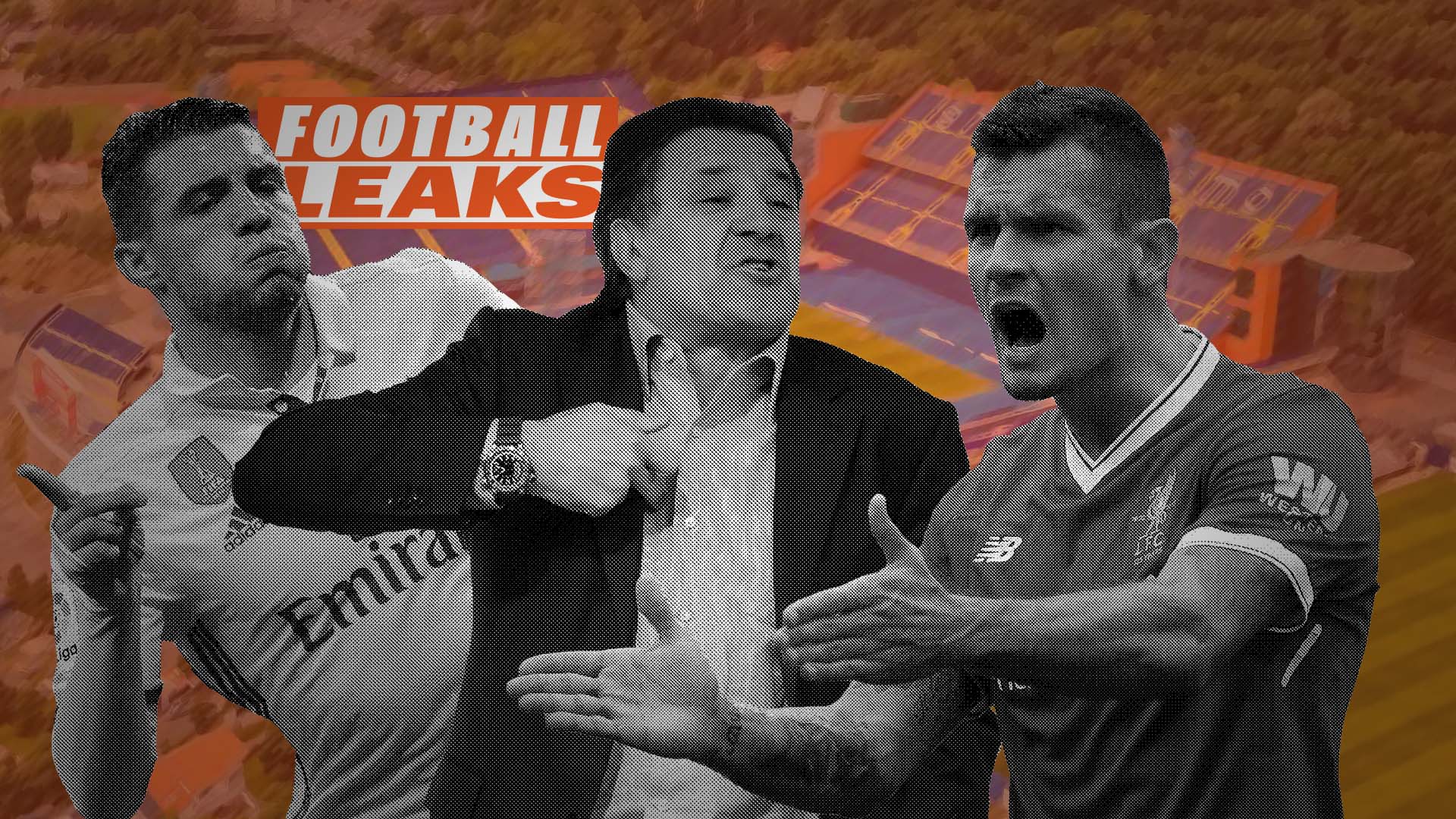

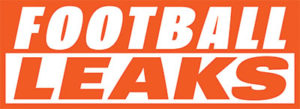











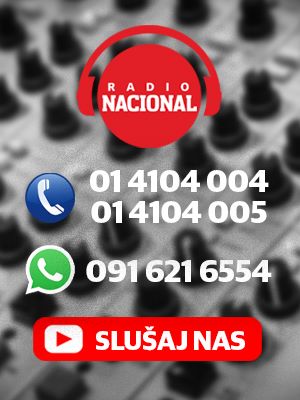
















Komentari